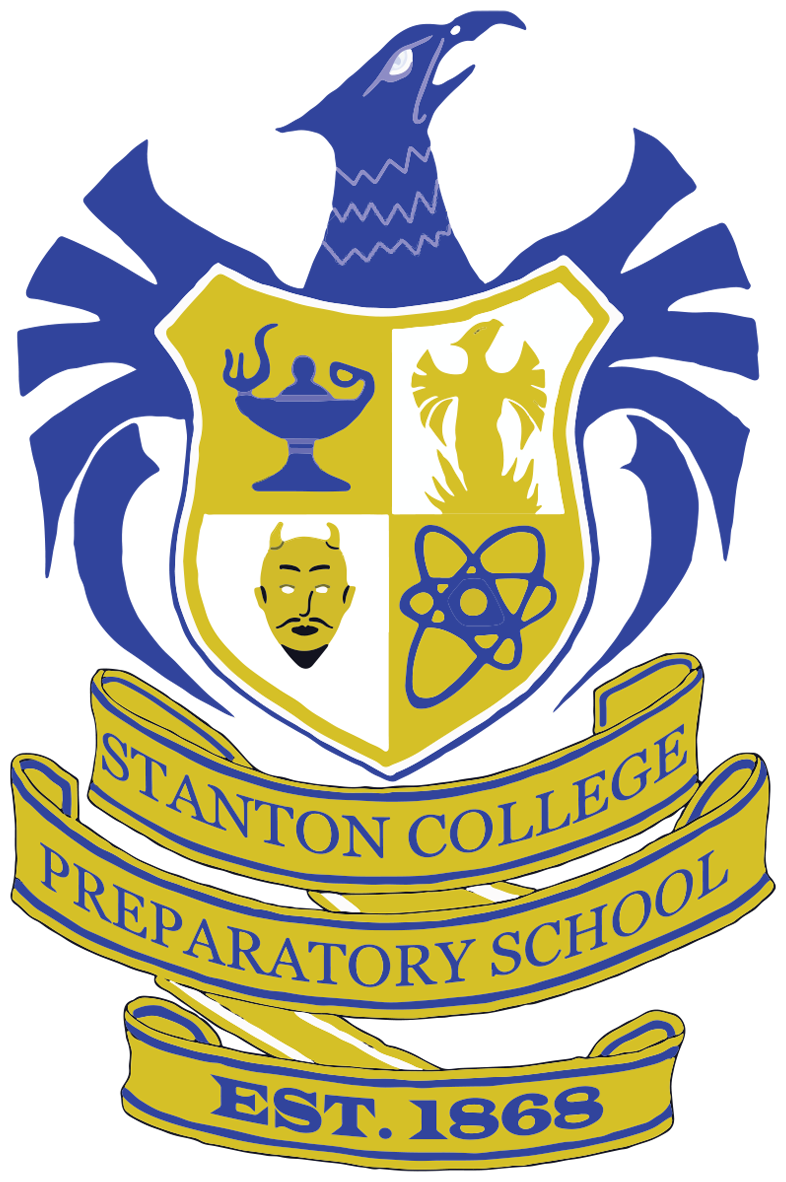
Stanton has a unique history as an educational institution. Immediately after Emancipation, a group of colored people in the City of Jacksonville organized themselves into the Education Society, and on February 8, 1868, purchased the property on which the Stanton School building now stands from Ossian B. Hart and his wife. This property was covered by Warranty Deed to C. F. Chase, I. L. F. Garvin, and Edwin M. Randall, trustees of the Florida Institute, for the purchase price of $850. It was their purpose and intent to erect on the property a school building to be known as the Florida Institute. Financial problems, however, delayed progress on the building until December of that year when the first school was built and incorporated through the aid of the Freedman’s Bureau. The school was a wooden structure and was named in honor of General Edwin McMasters Stanton, President Abraham Lincoln’s Secretary of War. He was an ardent champion of human rights and an advocate of free formal education for Negro boys and girls. It was the first school of education for black children in Jacksonville and its surrounding counties, and was the first school for black children in the State of Florida.
For a number of years, the Freedman’s Bureau conducted the school. Northern white teachers were employed until the county leased the property for the purpose of opening a public school. The first building was destroyed by fire in 1882. Another building constructed the same year was also destroyed by fire on May 3, 1901, a fire that destroyed much of Jacksonville. A new school was constructed in 1902 and remained in operation until 1917.
On May 23, 1914, the Circuit Court of Duval County appointed nine trustees to manage the school and its property. They included Robert B. Archibald, S. H. Hart, A. L. Lewis, J. W. Floyd, W. L. Girardeau, I. L. Purcell, B. C. Vanderhorst, J. E. Spearing, and W.H. H. Styles. Archibaid and Hart resigned and were replaced by J. M. Baker and L. H. Myers.
The deteriorating and unsafe condition of the poorly constructed school building prompted the Board of Public Instruction, the Stanton School trustees, and interested citizens of Jacksonville, to jointly agree to replace the wooden structure with a good fire-proof building. In 1917, the building, which stands at Ashley, Broad, Beaver, and Clay Streets, was completed. Stanton became the main focus for the education of black children in Duval County and the surrounding areas.
An equally impressive record of academic expansion has accomplished the physical growth of Stanton. Beginning as an elementary school with six grades under the administration of J. C. Waters as the first principal and D. W. Gulp who followed as principal, Stanton gradually became known throughout the state for the high educational standards which it still maintains today. The eighth grade was added under the principalship of W. M.Rell. Principal James Weldon Johnson started the move toward a high school department. The addition of the twelfth grade made Stanton an elementary, junior, and senior high school.
Stanton continued as a school for all grades through the administration of I. A. Blocker, G. M. Sampson and J. N. Wilson. In 1938, with F. J. Anderson as principal, Stanton became a senior high school exclusively. J. L. Terry served as the last principal of Stanton Senior High School, #101.
In 1953, the Stanton Senior School name was transferred to a new facility on 13th Street and was re-named New Stanton Senior High School. Charles D. Brooks was the first principal of the “new” school. Under his principalship, Stanton continued to foster the same traditionally high standards which befit its rich heritage and flourished as the oldest and most important high school for African Americans in Jacksonville. The Charles D. Brooks Honor Society still exists today to continue to foster those same high standards. The “Blue Devils” took pride in the academic, athletic, and artistic accomplishments of New Stanton.
Beginning in 1953, the Board and Ashley Street facility became known as “Old” Stanton. The Old Stanton building was used as a junior high school in 1953-1954. In August 1954, it was converted into Stanton Vocational High School and functioned as a vocational training center, adjusting its curriculum to train and graduate students in the technical skills of the day. At night, it became a center for the Adult and Veterans Education Program.
From 1969-1971, the focus of New Stanton Senior High School began to change from academic to vocational under principal Ben Durham, the former principal of Stanton Vocational High School. In 1971, the Old Stanton High School building was again placed under the control of the trustees of Stanton and the student body was transferred to New Stanton Senior High School, where the revised curriculum now provided for both the academic and the vocational interests of the students.
During the 1980-1981 school year, the focus of New Stanton Senior High School changed again. It became one of the magnet schools instituted by the Duval County School Board to serve gifted students throughout the county. Hence, the name was changed to Stanton College Preparatory School. Mrs. Carol Walker was its first principal.
Today, Stanton is recognized as one of the top academic schools in the nation. We provide a highly advanced academic program for students in grades 9-12. Stanton is one of a select few schools in Florida to offer the International Baccalaureate Program, a rigorous college-level program that provides course credit or advanced placement for up to one full year at colleges and universities worldwide. The course offerings include only honors-level, Advanced Placement (AP), dual enrollment and International Baccalaureate (IB) classes. In addition to the many AP and IB courses taught at Stanton, dual enrollment courses are offered through educational partnerships with the University of North Florida and Florida Community College at Jacksonville, and Edward Waters University.
Administrators, teachers, parents, and students work together to set goals and implement programs to enhance the learning atmosphere at Stanton. Our instructional staff of professional educators has the ability to foster genuine creativity – teachers who concentrate on inspiring, coaching, guiding, and motivating students. Our graduates demonstrate substantial intellectual accomplishments along with the ability to effectively communicate their knowledge to others. A majority of our students graduate with high achievement and with the ability to reason and perform complex non-routine intellectual tasks.
Stanton now reaches toward the future. We already hold the belief that education is the foundation for our future democratic society. We fully grasp that our students must become active learners, able to learn all the time. We strive to identify promising students, raise their aspirations, and support their efforts to do well in school and prepare for college. We are eagerly reaching out for effective tools, so our students will develop the deeper understandings necessary for a self-governing citizenry to make informed judgments about complex issues and events and to develop processes, so they can apply ideas to the resolution of problems.
